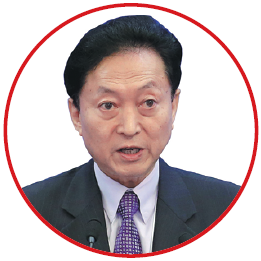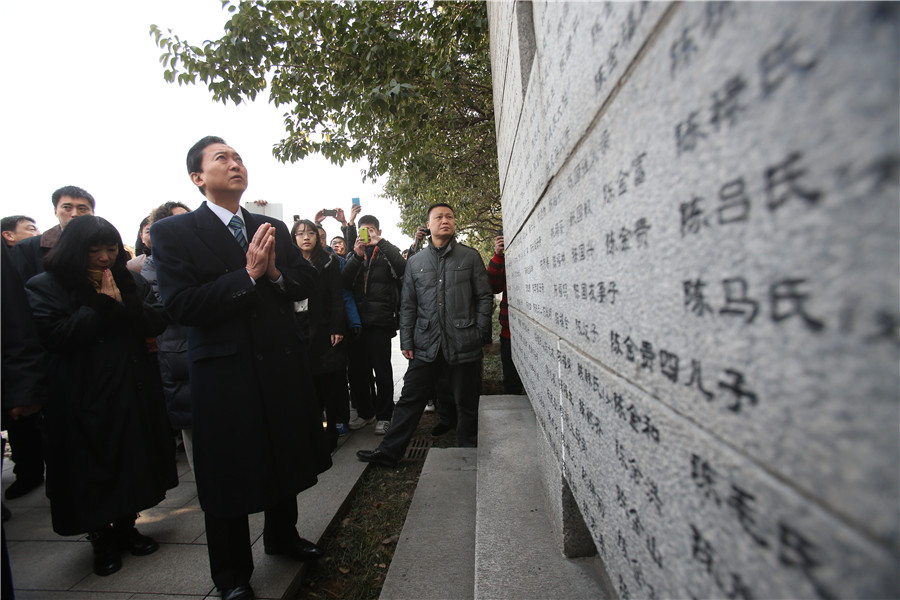
Tokyo on Feb 11, 1947
EDUCATION:
1969: BA in engineering, University of Tokyo
1976: PhD in industrial engineering, Stanford University
CAREER:
1981: Teaches management at Senshu University in Tokyo
1986: Elected to Japanese House of Representatives
1996: Forms Democratic Party of Japan
Sept 1999-Dec 2002: DPJ leader
May 2009-June 2010: DPJ leader
Sept 2009: Becomes prime minister after commanding victory over Liberal Democratic Party, which had governed Japan almost continuously since 1955
June 2010: Resigns as prime minister
2012: Stands down as member of House of Representatives
2013: Establishes East Asian Community Institute
A family history of enhancing ties

Japanese military police chief Captain Hatoyama, the main villain in the modern Peking Opera The Legend of the Red Lantern, is a notoriously brutal character.
One of the eight model plays, the only operas and ballets permitted during the "cultural revolution" (1966-76), The Legend of the Red Lantern, set during the War of Resistance Against Japanese Aggression (1931-45), made the name Hatoyama well known, if not well respected, in China. The opera was also later adapted into movies and TV series.
Yukio Hatoyama, Japan's prime minister from 2009 to 2010 and one of the few leaders of that country to have admitted and apologized for its war crimes, said his father had sought to "clarify his family's reputation".
In the 1970s, his father, Japanese foreign minister Iichiro Hatoyama, brought the "family complaint" to the attention of then premier Zhou Enlai.
"In Japan, Hatoyama is a rare surname and only my family is using this surname," Iichiro Hatoyama told Zhou during a visit to Beijing. "I have checked the Hatoyama genealogy book and no one was conscripted into the army during World War II, let alone among the invaders."
Yukio Hatoyama said his father wanted to impress upon Zhou that the Hatoyamas were neither villains nor invaders.
Even though the villain's name in the opera was not changed, Yukio Hatoyama said he thought the "interlude in history" was respected by the Chinese, as he had not seen any Japanese invaders named Hatoyama in any movies or TV series made afterward.
"In fact, my family have devoted their lifetime efforts to making China-Japan ties run in a positive direction for more than 100 years," he said, adding that those efforts had been important for both sides in past decades.
Dubbed "Japan's Kennedy family", the Hatoyama family's patriarchal head was his great-grandfather, Kazuo Hatoyama, who was president of Tokyo's Waseda University in the 1890s.
During that time, Waseda became the first Japanese university to accept Chinese students, with the first one admitted in 1899, and 762 enrolling in the following two years, including Lu Xun (1881-1936), a leading figure of modern Chinese literature.
Kazuo Hatoyama's son, Ichiro Hatoyama, was prime minister of Japan from 1954 to 1956, when it had yet to establish formal diplomatic ties with the People's Republic of China.
"My grandfather wanted to realize the normalization of Sino-Japanese relations during his tenure, but the political situation was not mature at that time," Yukio Hatoyama said.
However, Ichiro Hatoyama did appoint Japanese businessman-politician Takasaki Tatsunosuke to attend the first Asian-African Conference, in Bandung, Indonesia, in 1955, where Tatsunosuke met Zhou, setting a precedent for official Sino-Japanese exchanges after the end of the War of Resistance Against Japanese Aggression.
Although Ichiro Hatoyama did not realize the dream of seeing relations between the two neighbors normalized, his son, Iichiro Hatoyama, made an important contribution to it.
When he was Japanese foreign minister in the 1970s, he was responsible for the negotiations that led to the signing of the China-Japan Peace and Friendship Treaty in 1978.


